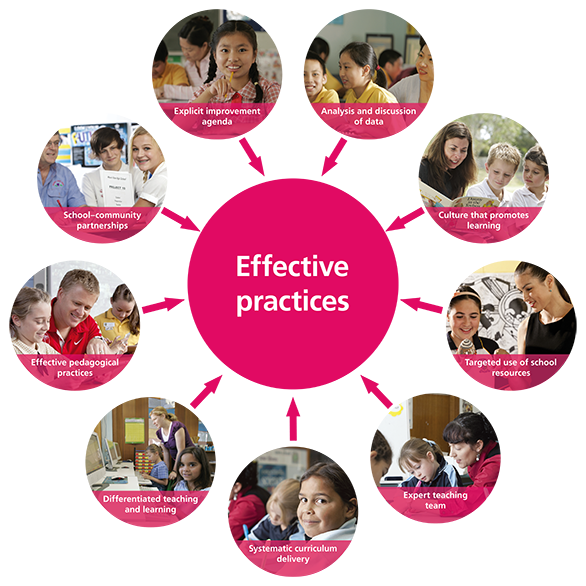

This resource presents research evidence and examples from NSW schools that illustrate effective practices for school improvement, particularly in literacy and numeracy.
These nine 'domains' of effective practice, featured in the National School Improvement Tool, are brought to life with practical advice for principals and teachers, a wealth of national and international research evidence, plus real examples from NSW of successful teaching and learning at the whole school, classroom and student level.
Independent evaluation evidence gathered in NSW suggests that these domains are closely inter-related. They are most effective when implemented as a coordinated suite of initiatives.
This resource was developed through the NSW Smarter Schools National Partnerships – jointly funded by the Commonwealth and NSW State Governments – and supported by the NSW Department of Education and Communities, the Catholic Education Commission NSW and the Association of Independent Schools of NSW.
A coordinated suite of initiatives
A critically important finding of the evaluation in NSW was that these strategies are most effective when implemented together - as a coordinated suite of initiatives. School improvement depends on effective leadership to guide whole-school change, but evidence shows that implementing just one or two of the nine domains will not produce optimal results. It is the combination of reform elements, not one aspect in particular, that makes a sustainable difference .
The evaluation also emphasised the importance of the interaction between contextual factors such as the local school environment, factors related to the classroom, teachers, and individual students, the effects of particular programs and systemic support. Factors relating to these contextual areas are further detailed in the section on “Context of effective practices ”.
Individual circumstances may mean that schools prioritise particular approaches, but improvement efforts will be best rewarded if schools commit to understanding and implementing aspects of all of the effective practices described here.

